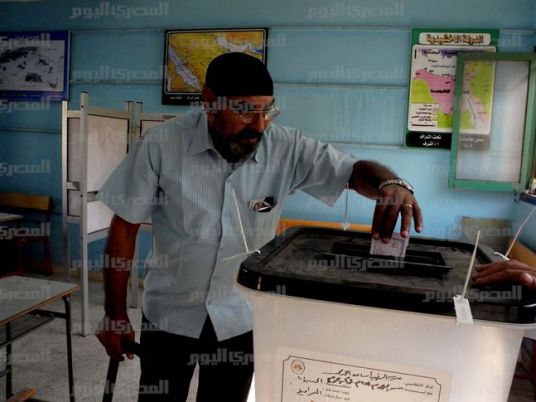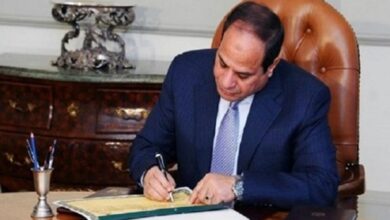
The recently-concluded House of Representatives' elections have unveiled phenomena that need in-depth analysis, particularly in relation to the return of financial influence, as well as the reappearance of members from the dissolved, previously-ruling National Democratic Party.
Businessmen have made a strong comeback, with official results from the High Elections' Commission showing 10 businessmen, mostly first-timers, winning their seats through the For the Love of Egypt electoral list.
Those businessmen, if coupled with MPs who have professional trades, could make up 25 percent of the chamber. This potential represents a serious dilemma since the 2011 revolution had in large part aimed to split money from power.
These same business people are in control of the major of the parliamentary blocs. Such is the case with the Free Egyptians Party, the Wafd Party, Mustaqbal Watan, the Conservatives Party, the People's Republican Party and the Modern Egypt Party
The current percentage of business MPs is even higher than in the Parliament which preceded the 2011 uprising, where 18.9 percent of the MPs were businessmen. It is also a surge from the 2012 Parliament, where the percentage stood at 13.6.
As for the categories of the purported business MPs, 22 are registered as CEOs and board members of private firms, 14 as company owners, eight as tradespeople and 17 as professionals.
NDP back in the field
Legally, Hosni Mubarak’s National Democratic Party no longer exists, but it is the large number of former members who competed and won in the most recent elections that keeps its memory alive in the new Parliament.
Observers differ on which new parliamentarian should be labeled a former NDP. Is it the person who represented the party in former parliaments (currently 80 MPs), or the person who occupied a certain party post, or it is anyone who was merely a member? (In that case the total could top 150 MPs).
A remarkable presence by former generals
The 2015 Parliament also includes 75 police and army officers, the largest number from that category in the history of Egypt's parliaments. That is up from seven in the 2012 chamber and even surpasses the 50 that were elected in the 2010 Parliament.
This surge could be attributed to the popularity gained by security and army personnel for removing the Muslim Brotherhood government in 2013, as well as their ongoing struggle against the growing number of terrorist attacks on the forces.
No More Brotherhood
Muslim Brotherhood members are absent in the current chamber, after having occupied 42 percent of seats under their own government. They were represented by a single MP in the 2010 Parliament.
Certain observers say the Muslim Brotherhood has never before boycotted elections, even when its relationship with the regime was tense, while others say it was difficult for the group to field candidates in the 2015 elections for the following reasons:
1- Their participation would be a recognition of the regime’s legitimacy, which it refuses to admit.
2- They are rejected by the youth and the civil forces due to the persecution these groups suffered from under the Brotherhood rule.
3- The group's funds are depleted because they have been financing terrorist acts.
4- Many of its leaders were either arrested or fled to Turkey and Qatar.
Independents rule
The aggregate number of elected members currently stands at 555, with 13 seats pending judicial challenges and 28 other seats awaiting appointment by the presidency. Though the first phase of elections saw political parties winning a majority of individually-sought seats, the surprise faded in the second phase with independents seizing 56.9 percent of the Parliament. This is the first time since the 1952 revolution where there has been no large majority political party.
Political parties’ total representation
Nineteen political parties are represented in the current legislature, a slight decline from 23 parties in the post-2011 chamber, but nonetheless a significant leap from only seven in 2010.
Women, Copts and Youth
The representation of youth, women and Christians in Parliament has been an issue for the regime since 1952, but the most recent Constitution stipulates that there be fair representation for them.
As a result, women won 14.8 percent of the seats with 87 elected candidates, including 14 to be appointed by the President. Christians won 36 seats (6.48 percent), a first it parliamentary history. Youth under 35 years of age won 9.7 percent, slightly more than the eight percent of the Parliament of 2012, which was called the Parliament of the Revolution.
Source: Youssry al-Azabawy, head of election and parliamentary affairs at the Ahram Center for Political and Strategic Studies
Edited translation from Al-Masry Al-Youm




